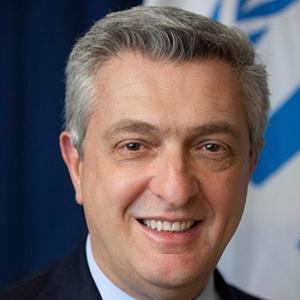Ten years of the Syrian crisis have inflicted unimaginable human suffering and pain. The world has failed Syrians. As the UN High Commissioner for Refugees, leading a response to one of the largest refugee crises in modern times, I observe this anniversary with a heavy heart. For global leaders, it’s a stark and damning reminder that this decade of death, destruction and displacement happened on their watch.
After ten years, half of the Syrian population has been forced to flee their homes. More than 5.5 million are refugees in the region while hundreds of thousands more are scattered across 130 countries. Another 6.7 million Syrians have also been internally displaced. In ten years, hardly any town or village in Syria has been spared the violence, and the humanitarian suffering and deprivation of those inside Syria is untennable.
A combination of waning aid with COVID-19 induced economic downturn has driven Syrian refugees to unseen levels of desperation. In Lebanon, nine out of ten Syrians live now in extreme poverty. The loss of livelihoods, rising unemployment and COVID-19 have also pushed millions of their Jordanian, Lebanese, Turkish and Iraqi hosts below the poverty line.
At the same time, we have been witnesses to extraordinary generosity that has saved millions of Syrian lives. Syria’s neighbours have been sheltering millions of refugees, shouldering huge responsibility. Their economies, scarce resources, infrastructure and societies are under tremendous pressure.
Beyond the region, a groundswell of solidarity with Syrian refugees has driven many governments to shift policies and offer genuine gestures of help to refugees and refugee-hosting countries through resettlement, family reunifications, humanitarian visas, scholarships and other safe and legal pathways for Syrian refugees.
The gravity of this crisis must not weaken our solidarity for Syrians. On the contrary, we must redouble our collective effort to support both refugees and the communities hosting them.
We owe Syrian refugees and the region no less.



